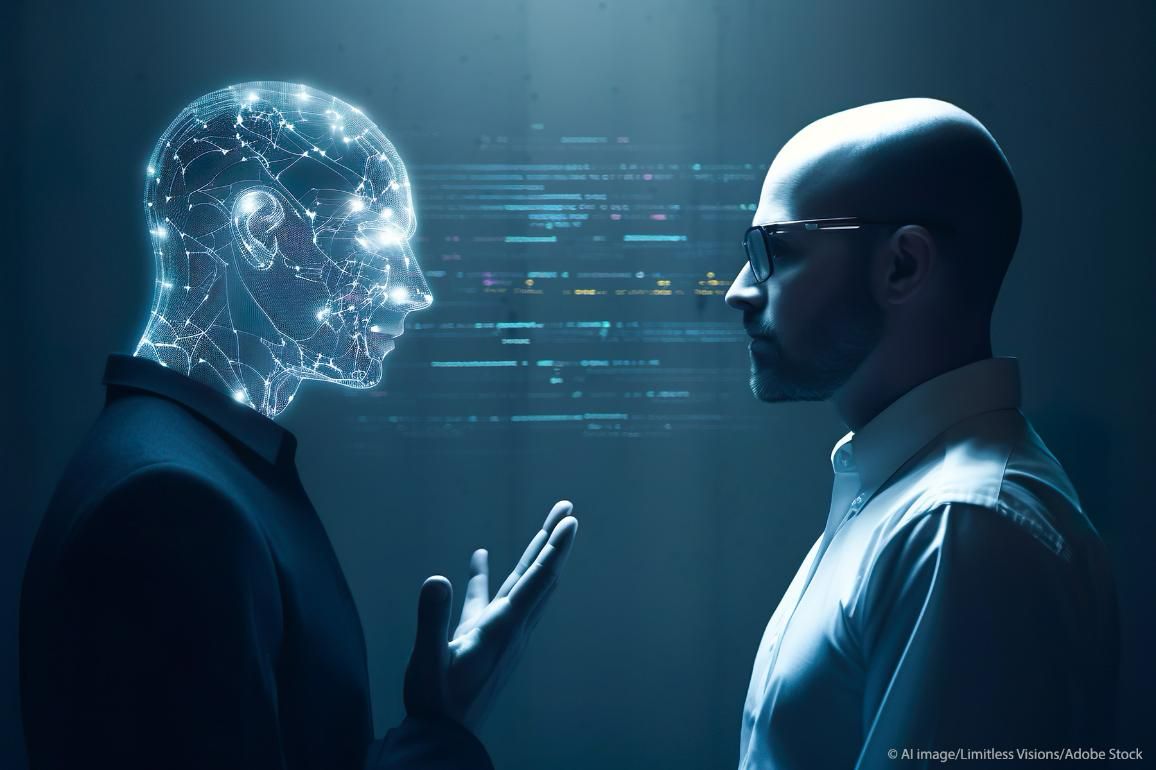By Musa Abdullahi Sufi, Kano Nigeria
In the age of rapid digital transformation, artificial intelligence (AI) has become both a promise and a paradox. As global economies race to automate processes and harness machine learning to improve efficiency, a profound question confronts us all: Will AI replace humans—or can we ensure it enhances humanity instead?
While technology is not inherently a threat, the way societies adopt it will define the balance between progress and displacement. With AI’s current trajectory, we are not merely upgrading tools—we are potentially reshaping what it means to work, relate, and even think.
The Global Context: From Innovation to Unease
From Silicon Valley to Shanghai, AI is becoming the new oil. According to McKinsey Global Institute, by 2030, up to 800 million jobs worldwide could be displaced by automation, especially in sectors like manufacturing, retail, transportation, and customer service. Chatbots now handle millions of customer queries, GPT models draft professional emails and reports, and autonomous vehicles threaten traditional taxi jobs.
In developed nations, the conversation is already shifting from efficiency to ethics. The European Union has released the AI Act, the world’s first comprehensive AI law, focusing on safeguarding human rights and jobs. In the UK, the Turing Institute is exploring how AI can augment rather than replace the workforce, stressing human-AI collaboration.
Yet, the very institutions driving these discussions are also deploying systems that subtly sideline human roles. As advanced AI handles medical diagnostics, legal document reviews, and journalism, professionals once considered irreplaceable are facing obsolescence.
Africa’s Promise and Peril in the AI Age
Africa stands at a unique intersection—technologically emergent, demographically young, and economically dynamic. The continent has the potential to leapfrog industrial-era technologies through AI, yet risks replicating the pitfalls of automation without preparation.
South Africa’s mining sector has already adopted AI-driven monitoring systems, reducing the need for underground labor. In Kenya, AI-powered drones are replacing human involvement in large-scale agricultural monitoring. While these innovations increase productivity, they also threaten millions of low-skilled and semi-skilled jobs.
Africa’s digital policy frameworks are still catching up. According to UNESCO, only 12 African countries have a formal national AI strategy. Without robust planning, automation could deepen inequality, particularly in regions where social safety nets are weak and informal employment is high.
The African Union’s Digital Transformation Strategy (2020-2030) offers a guiding vision, but it must now be backed by national action plans that prioritize human development alongside AI adoption.
Nigeria: A Nation at the Edge of Transformation
With its vast youth population and growing tech ecosystem, Nigeria is Africa’s AI frontier. Companies like Data Science Nigeria, Flutterwave, and Andela are leading innovations that integrate AI into financial services, health diagnostics, and software engineering.
Yet the country also faces a dilemma. Over 55% of Nigerian workers are in informal employment, where automation can cause invisible displacement. AI-powered language translation tools, for instance, threaten the livelihood of thousands of local interpreters and typists, while smart chatbots already reduce entry-level customer service roles in telecom and banking.
Furthermore, Nigeria’s education system has yet to align with the AI revolution. The curriculum remains theoretical, with minimal integration of emerging technologies or soft skills like emotional intelligence, creativity, and problem-solving, the very attributes that AI cannot replicate.
The risk is clear: without systemic reform, Nigeria may find its youth excluded from the very revolution they are meant to lead.
How Humanity Must Respond Through;
Redefine Education: Globally and locally, we must shift from rote learning to human-centric education that emphasizes critical thinking, emotional intelligence, ethics, and adaptability. AI can replicate knowledge, but not wisdom, empathy, or innovation rooted in human experience.
Human-AI Collaboration, Not Competition: Governments and corporations should invest in “cobotics”—collaborative robotics—where humans and machines work side by side. In Japan’s elderly care sector, for instance, robots assist with lifting, but emotional support is left to humans. This model should be replicated, especially in healthcare, education, and social work.
Regulate, Don’t Eliminate: Like environmental laws, AI governance must be proactive. Countries must adopt policies that enforce ethical AI use, protect jobs, and create re-skilling pathways. Nigeria can look to Rwanda’s Centre for the Fourth Industrial Revolution, a partnership with the World Economic Forum, as a model for ethical AI governance.
Digital Literacy and Lifelong Learning: Public-private partnerships should focus on re-skilling and up-skilling populations. Initiatives like Microsoft’s Global Skills Initiative or Google’s Africa Developer Scholarship Program show the power of accessible, scalable training. Governments should support such programs locally.
Create New Roles AI Can’t Fill: While some jobs will be lost, others will be born. Roles that require ethics, storytelling, community building, conflict resolution, and caregiving will grow. Society must invest in these “deeply human” professions as part of its future workforce planning.
Conclusion: Technology Must Serve Humanity, Not Replace It
AI is not destiny it is a tool. And like all tools, it reflects the intent of its wielder. The world must resist the seduction of efficiency at the cost of dignity. Africa and particularly Nigeria must be vigilant to ensure the AI revolution does not become a new digital colonialism that exploits data and labor while excluding humanity.
To prevent AI from replacing us, we must first reaffirm what it means to be human: creative, moral, compassionate, and adaptable. Let AI do what it does best, but let humanity lead.
Musa Abdullahi Sufi is a development specialist, senior vision director at SIDES, and international columnist on youth, education, and innovation. He writes from Kano, Nigeria.


